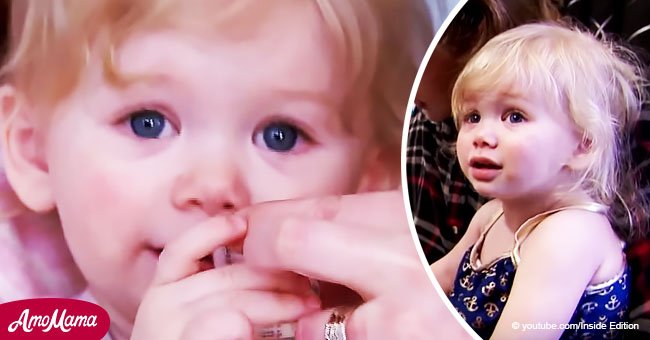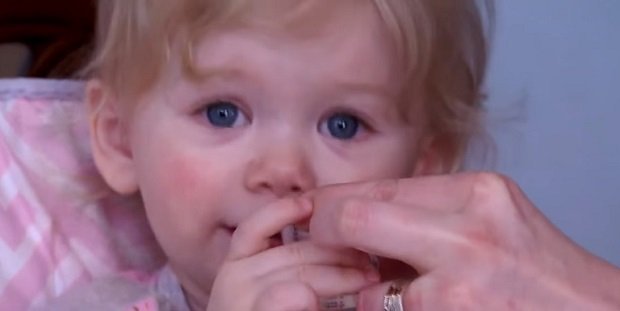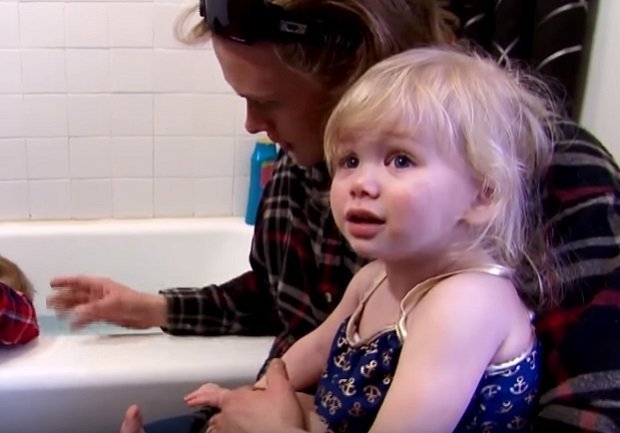
Harsh life and struggle of 1-year-old girl allergic to water, even her own tears
The poor little girl can’t cry, sweat, or have a bath without breaking out in painful blisters. Her parents fear that in the future she won’t be able to drink water.
In October 2017, Ivy Angerman, of Hastings, Minnesota, was diagnosed with aquagenic urticaria, a rare condition in which hives develop rapidly after the skin comes in contact with water, regardless of its temperature.
According to a People Magazine report, her parents noticed something was wrong when they saw Ivy was getting a red rash while in the bathtub but assumed it was just the shampoo or soap.
Eventually, Brittany and her husband Daniel took Ivy to the doctor, where she was diagnosed with the extremely rare allergy, one that only around 50 people in the world have.
They learned that Ivy’s life will be full of restrictions. She can’t enjoy a bath, take a trip to the pool, or play with a hose in the back garden without her skin bursting out in angry welts. Even going out in the rain will cause pain, as well as crying or sweating.
Everything from Ivy’s own tears to her sweat can cause a reaction. Brittany says even touching snow, something the family has had a lot of this winter in Minnesota, will make her daughter break out in hives.
The reaction can last anywhere from 15 minutes to an hour, but if she takes an antihistamine the reaction time is less. Brittany says the hives her daughter experiences have recently begun to feel hotter, Ivy is also starting to say how “hot” they are now.

Source: Youtube/Inside Edition
Aquagenic urticaria appears to be more common in females, and most often starts around puberty, according to NIH. Scientists still don't know why it happens, and since most reported cases seem to be sporadic, there's no clear genetic cause, either.
There are some treatments that may address the symptoms, including antihistamines, UV light treatments, a steroid drug, and a blood pressure drug called Propranolol, Farzan explained.

Source: Youtube/Inside Edition
But the treatments have varying effectiveness and there's still not enough data to say which is best. The Angerman family has set up a GoFundMe campaign for Ivy to spread the word about the rare condition.
The diagnosis is so new that the family hasn't had much time to consider how Ivy will navigate the rest of childhood and adulthood while minimizing water contact.
